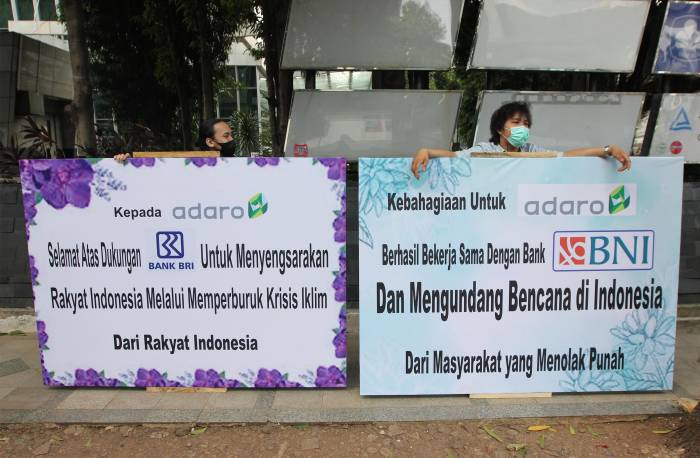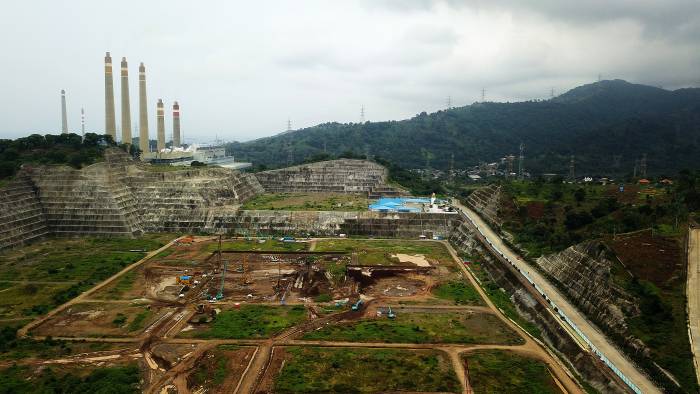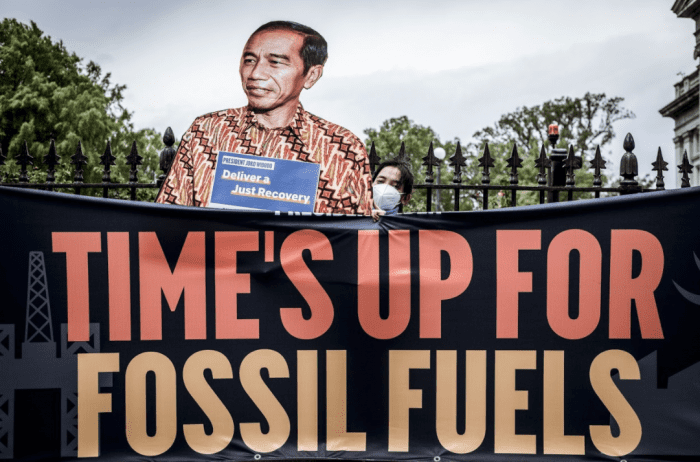The last two decades have seen Indonesia rise to the top of the pack as one of the world’s leading coal exporters and consumers.
One of the country’s largest state-owned banks, BNI is now the third-largest funder of fossil fuels in Indonesia. This is in direct contrast to other initiatives the bank has previously joined in attempts to signal its commitment to sustainability: In 2005, BNI became the first Indonesian bank to sign onto the United Nations Environment Programme Financial Initiative (UNEP FI) Statement of Commitment, and in 2009 under the rallying cry “BNI go green” it developed a Corporate Social Responsibility (CSR) program including an annual sustainability report. It was then awarded Indonesia’s Sustainable Business Award in the Banking and Finance category in 2012 and 2013.

Photo: Bersihkan Indonesia Source: Twitter
Local banks serve as a safety net for the domestic coal industry, as foreign banks are now taking steps to phase out coal. As such, BNI must be held accountable for its role in the sector and contributions to highly controversial developments, and with a customer base that is heavily represented by youth and university students, there is an opportunity to apply significantly more pressure on it to divest.
BNI has deep ties to university campuses around the country through agreements it shares with close to every university in Indonesia. This includes requiring all students to open a BNI bank account, since their student cards function as ATM cards, as well as requiring they pay tuition fees through the institution.
All risk, no reward

Photo: Market Forces Source: Twitter

Photo: WatchDoc Documentary – Mosi Tidak Percaya

Source: 350.org Website
Coal power currently accounts for 60% of Indonesia’s electricity generation. According to a recent report from Global Energy Monitor, 75% of all planned coal power construction in South and Southeast Asia is attributable to developments planned in Indonesia. But according to the International Renewable Energy Agency (IRENA), it is possible for Indonesia to meet electricity demands through renewable energy by 2030, two decades sooner than its current 2050 target.
While economic opportunities for coal power in funding countries dwindle due to the rapidly increasing affordability of renewable energy, waning domestic demand for coal, and international pressure to act on climate, recent years have seen manufacturers in these countries find more attractive economic imperatives in building coal power plants in Indonesia.
But additional regulations on overseas financing for coal in manufacturers’ host countries are beginning to see lending patterns slow too, so that countries like Indonesia are becoming increasingly dependent on safety nets in the form of state-owned banks and financial institutions to fund their planned coal development.
It’s time to pressure state-owned banks and call them out for their continued support for fossil fuel development.
350.org is working to end fossil fuel finance. Follow the momentum here.
Sign the petition to tell South Korea’s President Moon Jae-In to stop supporting Java 9 and 10 #NineTenMustEnd.